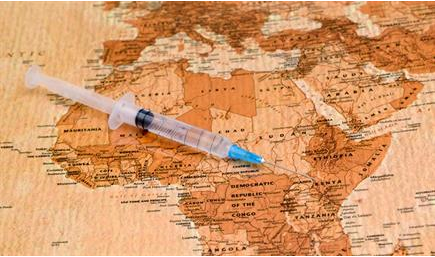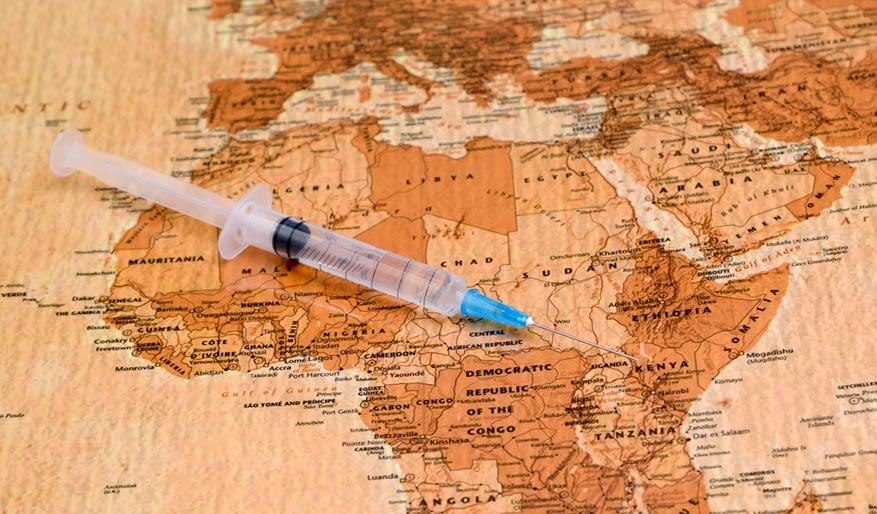Taking a trip overseas can take a lot of planning and preparation. While you may be equipped for flight delays, packing mishaps and the like, the last thing you want is to fall ill abroad. With the recent measles outbreak, which, according to the World Health Organization (WHO), saw a 300% increase in global cases in the first 3 months of 2019 (compared to the same period in 2018), it’s important that international travelers get the necessary vaccinations before setting off.
Which vaccinations do travelers need in 2019?
It’s important to make sure you are up-to-date on your routine vaccinations - those recommended based on your age and health condition. They include the childhood vaccines, those you need before starting school, and those recommended for adults such as the flu vaccine or tetanus booster.
- Measles: Most children get vaccinated for measles early on. Although measles remains a common disease in many parts of the world, including Europe, the Middle East, Asia, the Americas and Africa, in 2019, many countries have experienced measles outbreaks, with high number of cases in countries including Thailand, Vietnam, Japan, Ukraine, the Philippines and the US to name a few.
Cleveland Clinic Abu Dhabi Infectious Diseases Consultant, Dr. Fernanda Bonilla says, "The best way to protect yourself and your loved ones from measles is by getting fully vaccinated 2 weeks before you depart, but if your trip is less than 2 weeks away and you are not protected against measles, you should still get a dose of MMR vaccine (the measles-mumps-rubella vaccine) which protects against all three diseases."
- Tetanus: Tetanus is a disease that is contracted when toxic spores enter your body through wounds. If you cut yourself or are bitten by a wild animal, you should get a tetanus shot. Tetanus is present globally. So, you should make sure you are protected with a dose every 10 years, no matter where you’re traveling to.
- Diphtheria and pertussis: A worldwide concern, you may have been vaccinated for as a child for both of these diseases. However, it’s always best to check the need for a shot, as both are highly contagious respiratory illnesses that can be fatal.
- Polio: Polio is primarily contracted through contaminated food and water. Thankfully, due to robust vaccination efforts around the world, polio occurs very rarely. While your chances of contracting it are low, you should check if you’re vaccinated before going to Afghanistan, Nigeria, or Pakistan, where cases still occur.
- Hepatitis A & B: While hepatitis A is spread through contaminated food, water or even human contact, hepatitis B can be contracted from person to person via infected body fluids. You should get vaccinated against both these diseases if you’re travelling to tropical countries with low levels of sanitation.
- Yellow fever: As per WHO, yellow fever is a required vaccine in several countries in Africa and South America and there are strict regulations against entry and exit for travelers who have don’t have evidence of taking the vaccine when required.
Recommended vaccines are those that will protect you from illnesses that are usually travel-related but they are not required by the government of the country you are visiting, or included in the routine vaccination schedule. Some examples include:
- Typhoid: This disease is present worldwide but there is a higher risk of becoming infected (through food and water) in tropical parts of the world. This is an important vaccine and most travelers should get immunized against typhoid before their trips.
- Rabies: Both domestic and wild animals may carry rabies and a bite can result in human infection, which can be fatal. For prevention, you can get a pre-exposure vaccine, which sets up your body for protection. If you’re bitten, you’ll need a few more injections. While rabies has a greater risk in Asia, Africa, and South America, this is a very serious disease and a shot may be recommended depending on your destination.
- Malaria: This serious and sometimes fatal disease is transmitted by a mosquito bite that contains the malaria parasite. People who get malaria experience high fevers, shaking, chills, and flu-like illness. Dr. Bonilla states that, "Although there is no vaccine to prevent malaria, important measures include avoiding mosquito bites through the use of repellents or insecticide treated bed nets and preventive medication. Some specific medicines to prevent malaria may be given to you if you are at risk of infection in the country you are visiting."
As a general precaution, all travelers should be careful to avoid eating or drinking from unhygienic places and general unsanitary environments, and to take care to prevent mosquito bites.
The best way to ensure that you are thoroughly protected is by checking your medical records and vaccination records, and consulting with your doctor or travel clinic a few weeks before traveling.

